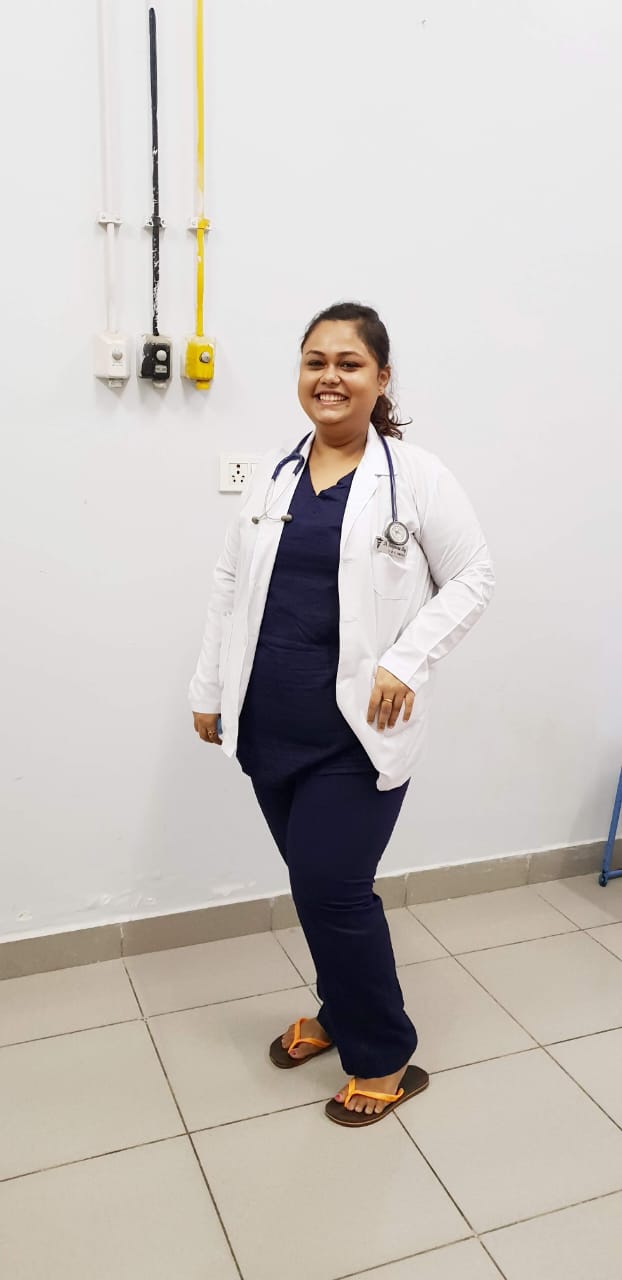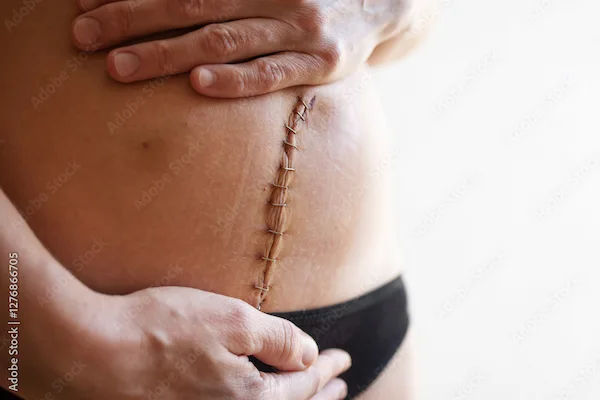How Long After A Hysterectomy Can You Bend Over?
Discover how long after a hysterectomy you can safely bend over. Learn about recovery timelines, precautions, and tips to ensure a smooth healing process post-surgery.

Written by Dr.Sonia Bhatt
Last updated on 3rd Jul, 2025

Introduction
A hysterectomy is a major surgical procedure that involves the removal of the uterus, and sometimes other reproductive organs like the ovaries and fallopian tubes. Recovery from this surgery takes time, and patients often have questions about resuming daily activities, especially bending over. If you’ve recently had a hysterectomy or are planning one, this guide will help you understand when it’s safe to bend over and how to care for yourself during recovery.
Understanding Hysterectomy Recovery
Recovery time after a hysterectomy varies depending on the type of surgery:
Abdominal hysterectomy (large incision in the abdomen): 6 to 8 weeks
Vaginal hysterectomy (removal through the vagina): 4 to 6 weeks
Laparoscopic or robotic hysterectomy (minimally invasive): 2 to 4 weeks
Your doctor will provide specific guidelines based on your procedure and overall health.
When Can You Bend Over After a Hysterectomy?
Bending over too soon can strain your healing tissues and internal stitches, leading to pain or complications. Here’s a general timeline:
First 2 Weeks: Avoid bending over completely. Your body is still healing, and sudden movements can cause discomfort or bleeding.
Weeks 3-4: You may start bending slightly at the knees (not the waist) if your doctor approves. Avoid lifting anything heavy.
After 6 Weeks: Most patients can gradually resume normal movements, including bending, if cleared by their doctor.
Always follow your surgeon’s advice, as recovery varies from person to person.
Why Is Bending Over Restricted?
Bending or twisting at the waist puts pressure on your abdominal muscles and pelvic area, which are still healing. Risks of bending too soon include:
Pulling on internal stitches: May cause pain or slow healing.
Increased swelling or bleeding: Straining can lead to complications.
Hernia risk: Weak abdominal muscles are more prone to hernias.
Consult Top Specialists for Personalised Tips
Tips to Avoid Bending After Surgery
Since bending is restricted early in recovery, here are some helpful tips:
Use a grabber tool: Helps pick up items without bending.
Keep essentials at waist level: Store frequently used items on countertops or tables.
Sit to put on shoes/pants: Avoid bending from the waist.
Ask for help: Have family or friends assist with tasks that require bending.
Safe Movements During Recovery
Instead of bending over, try these alternatives:
Squatting (if approved by your doctor): Bend at the knees, keeping your back straight.
Sitting down first: For tasks like tying shoes, sit on a chair or bed.
Slow movements: Avoid sudden twists or stretches.
Signs You’re Overdoing It
If you experience any of these symptoms, you may be straining too much:
Increased pain or discomfort
Swelling or bleeding
Feeling lightheaded or dizzy
Unusual vaginal discharge
If these occur, rest and contact your doctor.
When to Resume Normal Activities?
Most women can gradually return to their usual routines after 6 weeks, but always check with your doctor first. Some activities may take longer, such as:
Heavy lifting (avoid for at least 8-12 weeks)
Intense exercise (start with gentle walks, then slowly increase activity)
Sexual activity (usually after 6-8 weeks, depending on healing)
How to Support Your Recovery?
To heal faster and avoid complications:
Follow post-op instructions: Take medications as prescribed.
Rest but stay lightly active: Short walks prevent blood clots.
Eat a healthy diet: Fibre-rich foods prevent constipation.
Stay hydrated: Helps with healing and digestion.
Avoid heavy lifting: Follow your doctor’s weight restrictions.
When to Seek Medical Help?
Contact your doctor if you experience:
Severe pain or fever
Heavy bleeding or foul-smelling discharge
Difficulty breathing or chest pain
Signs of infection (redness, swelling, pus)
Conclusion
Recovering from a hysterectomy takes patience. While bending over may seem like a simple task, it’s important to wait until your body has healed—usually around 6 weeks, depending on the type of surgery. Always follow your doctor’s advice and listen to your body. If you need personalised guidance, consider booking a consultation with a specialist through Apollo 24|7 for expert care and support.
Consult Top Obstetrics and Gynaecology Surgeon
Consult Top Specialists for Personalised Tips

Dr. Veena H
Obstetrician and Gynaecologist
16 Years • MBBS DGO
Bangalore
Apollo 24|7 Clinic - Karnataka, Bangalore

Dr Swatika Kumari
Obstetrician and Gynaecologist
19 Years • MBBS, DGO, DNB Obstetrics & Gynaecology
Nashik
Apollo 24|7 Clinic - Maharashtra, Nashik

Dr. Priyanka Surisetty
Obstetrician and Gynaecologist
8 Years • MBBS, DGO
Visakhapatnam
Apollo 24|7 Clinic - Andhra Pradesh, Visakhapatnam

Dr. Asha Rani Singh
Obstetrician and Gynaecologist
24 Years • MBBS DGO
Delhi
Dr Asha Rani Singh Clinic, Delhi

Dr. Sreeparna Roy
Obstetrician and Gynaecologist
8 Years • MBBS , MS (OBSTETRICS & GYNAECOLOGY), Fellowship in Infertility, Endoscopy & Ultrasonography), Fellowship in Laparoscopy & Hysteroscopy,DRM
Barasat
Diab-Eat-Ease, Barasat
Consult Top Obstetrics and Gynaecology Surgeon

Dr. Veena H
Obstetrician and Gynaecologist
16 Years • MBBS DGO
Bangalore
Apollo 24|7 Clinic - Karnataka, Bangalore

Dr Swatika Kumari
Obstetrician and Gynaecologist
19 Years • MBBS, DGO, DNB Obstetrics & Gynaecology
Nashik
Apollo 24|7 Clinic - Maharashtra, Nashik

Dr. Priyanka Surisetty
Obstetrician and Gynaecologist
8 Years • MBBS, DGO
Visakhapatnam
Apollo 24|7 Clinic - Andhra Pradesh, Visakhapatnam

Dr. Asha Rani Singh
Obstetrician and Gynaecologist
24 Years • MBBS DGO
Delhi
Dr Asha Rani Singh Clinic, Delhi

Dr. Sreeparna Roy
Obstetrician and Gynaecologist
8 Years • MBBS , MS (OBSTETRICS & GYNAECOLOGY), Fellowship in Infertility, Endoscopy & Ultrasonography), Fellowship in Laparoscopy & Hysteroscopy,DRM
Barasat
Diab-Eat-Ease, Barasat
.webp)



